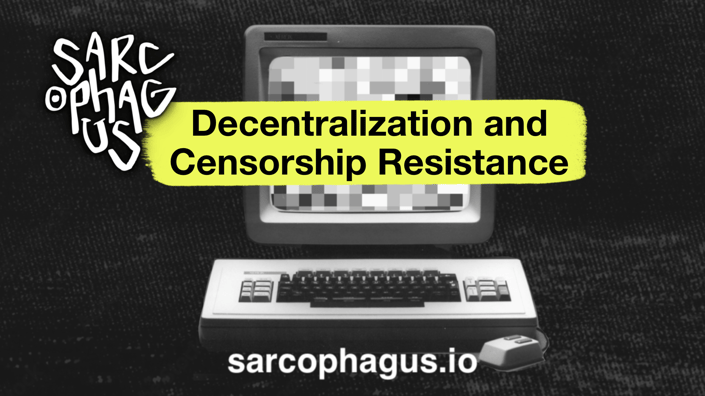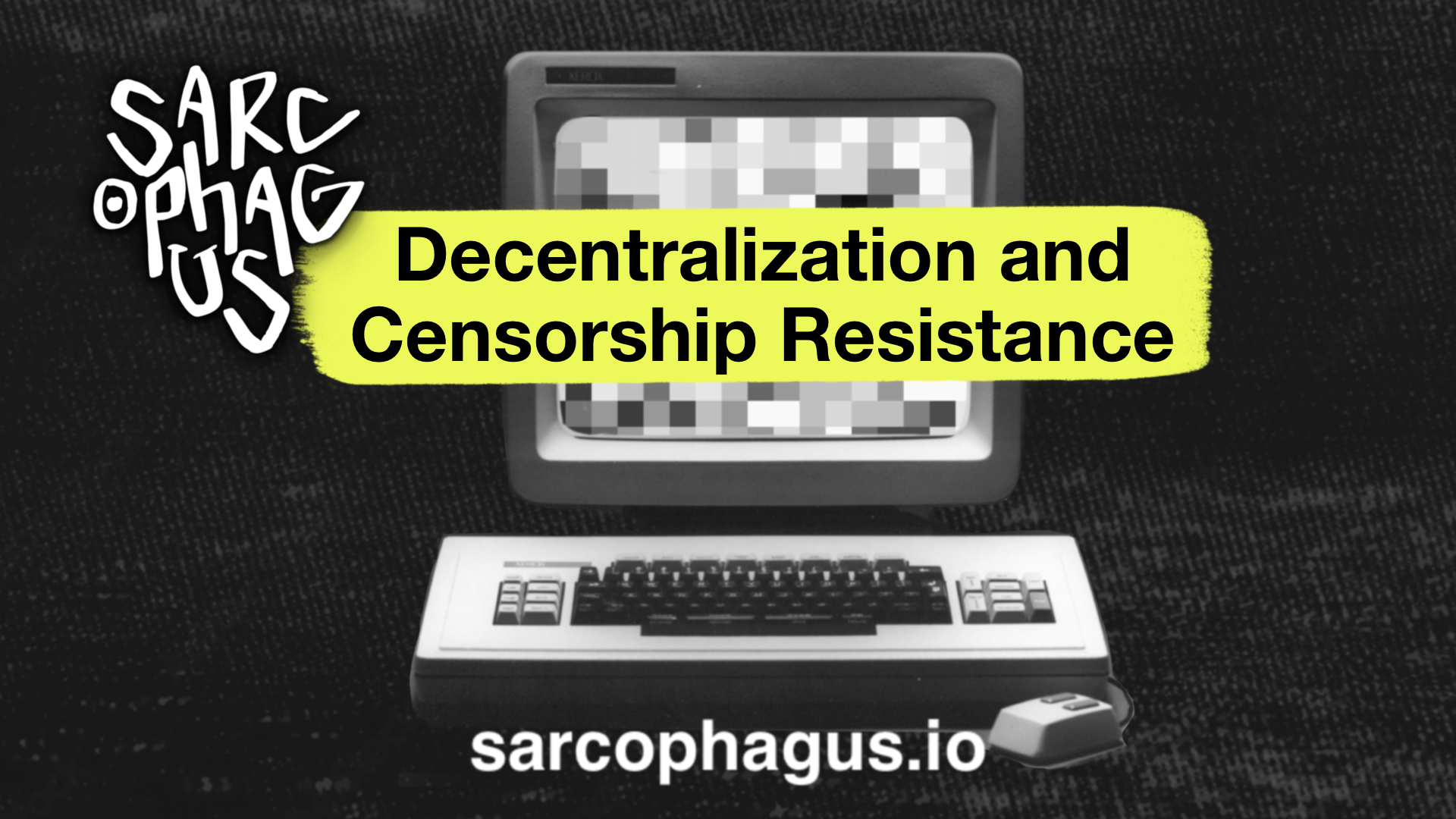Decentralization and Censorship Resistance

As the internet has evolved, the combination of blockchain technology and web development has created something that we commonly refer to as web3. One of the main drivers behind the creation of web3 is that in the current version of the internet where the majority of the world lives in, it is currently owned and monopolized by a handful of billion-dollar corporations. The problem this poses is that the internet is run, controlled, and owned by these companies, who subsequently take that data to profile, understand, and capitalize this information about anyone. On the surface, one might think that this is a benefit since ‘I can see catered and selected goods based on my information’, but going a little deeper this poses issues around privacy and manipulation. As technology has morphed to create information, entertainment, and other various forms of attention for people, the more control a single entity has around that information could lead to dire situations. This is one of the founding principles around the creation of Sarcophagus, giving back control to the user to manage their data and release it when they want it to be released.
Sarcophagus is designed as a decentralized application that enables users to manage personal and private information and pass it to whoever utilizing a dead man's switch. While this may sound like a mouthful, the principles that Sarcophagus are built around are simple:
- Decentralization - Ensuring no single point of failure
- Censorship Resistance - Preventing outside actors to interfere with an independent user's actions
- Security - Ensuring the safety and integrity of data through all processes and interactions
Permissionlessness and Censorship-Resistance
Sarcophagus enables control and safeguarding of digital data through encryption, but questionably another equally important part is around censorship resistance. We started with the other use case, because it's a little easier to digest, but censorship resistance and permissionless activity are critical to personal freedoms. Not only does decentralization provide an opportunity for a user to control their data and how it interacts on a decentralized application, but they also can perform whatever actions on the network without recourse. This may sound like a way for people to do nefarious things, but in context to regions of the world where personal liberties are often limited or controlled, this allows the user to function freely. Places that may have limitations on the way they can use and/or transfer money can act freely on a decentralized application and send funds from their wallet to another user simply with a computer and an internet connection. Sarcophagus is built around this key concept that data integrity is maintained through encryption and decentralization built around the protocol. This ensures that as long as the user has access to the internet and can utilize the dApp, there are no external forces that can prevent the user from creating a sarcophagus.
Decentralized Applications like Sarcophagus Enable:
- Peer to Peer transfer of data or funds
- Access to financial tools (that may not be normally accessible)
- Ownership and control of the information that is used on a decentralized application and subsequently stored on-chain
Use Cases/Examples Demonstrating the Importance of Decentralization and Censorship Resistance:
‘Extremely aggressive’ internet censorship spreads in the world’s democracies
A team of researchers from the University of Michigan found that censorship has increased in 103 countries based on their study. Surprisingly, this was also seen in countries where we would not normally think about censorship happening, like Norway, Japan, and Italy. Overall no countries have had surges in restrictions like China, but even in places like the United States saw the groundwork laid for building systems to manage and censor the web. Most countries have slowly implemented restrictions on sites like gambling and pornography, but oddly human rights and dating websites are restricted. Ultimately, many of these topics are things that further lay down the roots that someone, be it the government, your ISP, or someone else in a position of power can limit choices available to anyone.
Building the (Fire) Wall: Internet Censorship in the United States and China
China is a well-known country that has implemented restrictions on the internet in recent times. These efforts have affectionately been called "The Great Firewall of China" and reflect how the government aims to protect the image and authority of the ruling party. Unconsequential to all the firewalling of sites, the internet in China is remarkedly slow, ranking 91st in the world, which should come to the surprise of many considering the wealth and infrastructure one would think China has at it's disposal. As these restrictions are happening in China, the United States is trying to counter some of these efforts, but ultimately are fighting fire with fire and cross-banning applications that could have impacts on security and data leakage to China. This is a way that censorship is weaponized against everyone at the behest of the governments.
